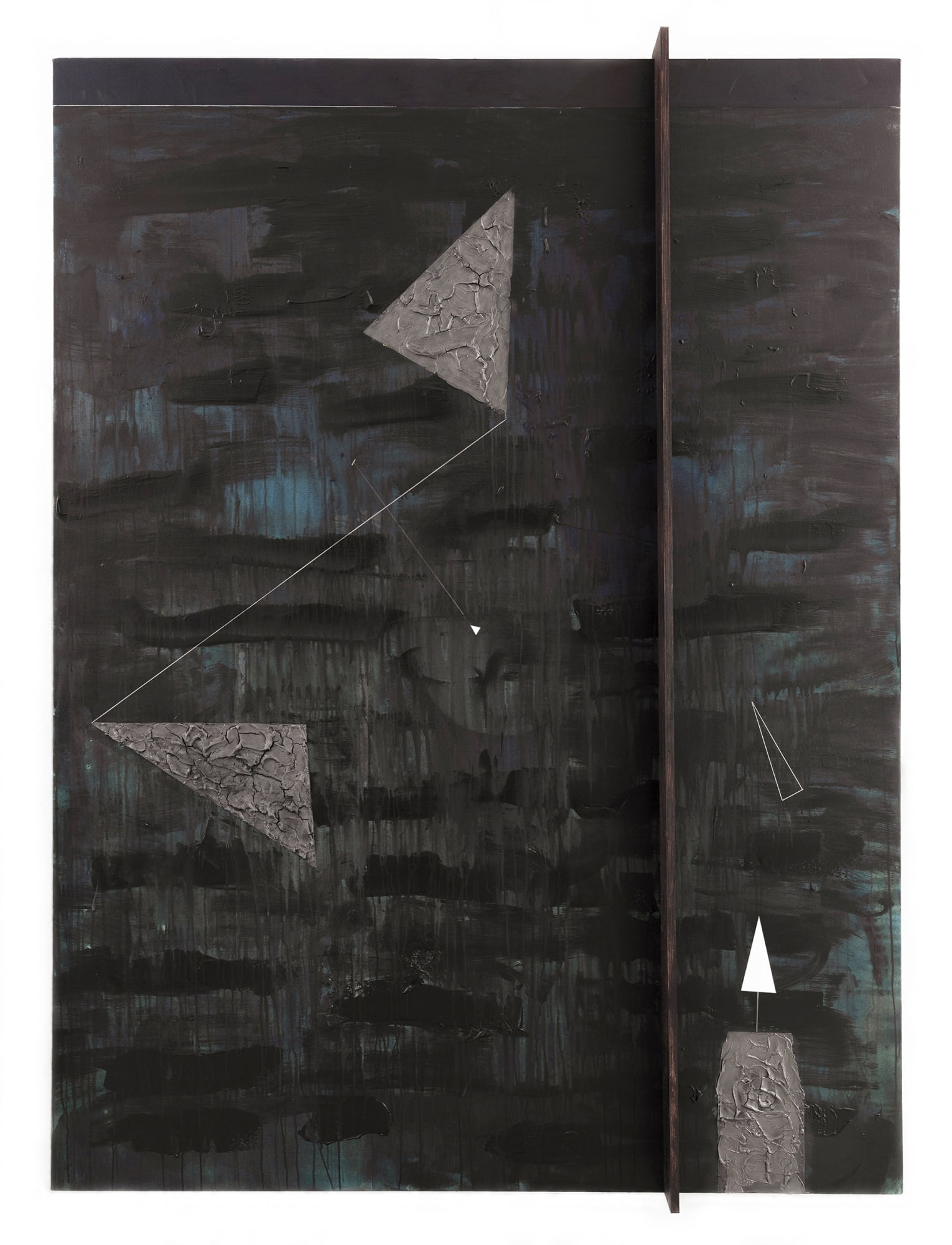Hot Cold (Black Water 1919), 2019

Rhona Hoffman Gallery
The bold, abstract compositions of acrylic and gouache presented here are Torkwase Dyson’s response to the remembrance of the Red Summer, a racially fueled tragedy that took place in Chicago on July 27, 1919. At the time, preexisting tensions between whites and blacks exploded into five days of violence following the murder of Eugene Williams, who, on that day, was stoned by a white man while swimming between segregated beaches of Lake Michigan. Angst within the city of Chicago was amplified when a white police officer failed to arrest the white man who was responsible for Williams's death, and arrested a black man instead. According to historical archives, Williams and a companion were said to be swimming with a raft that they had constructed to navigate and enjoy the lake waters between segregated spaces. Although there are inconsistencies in the documentation of the raft, the concept of a handmade floating device exists in different iterations from the time. Dyson has examined the occurrences of the Red Summer and investigated how rising sea level and geography has shifted over the last century. She has also considered how this shift, caused by our climate crisis, disproportionately affects people of color. While thinking about Williams’s story, Chicago-native Dyson’s own visceral memories of swimming in Lake Michigan as a child came to her mind. These nostalgic thoughts dovetailed with the artist’s more recent environmental research as a diver in the Atlantic Ocean to create a new body of work, deeply personal and speaking to the history of spatial conditions to which she is indelibly tied.
Torkwase Dyson (born 1973 in Chicago) received a BFA from Virginia Commonwealth University in 1999 and MFA from Yale School of Art in painting/printmaking in 2003. The work of Dyson merges ideas such as site and built environments, nature and culture under the rubric of environmentalism. Fascinated with transformations, ambiguities, and environmental changes that place these subjects in relationship to each other, Dyson investigates our connections to imagination, materiality, geography and belonging. She lives and works in New York.